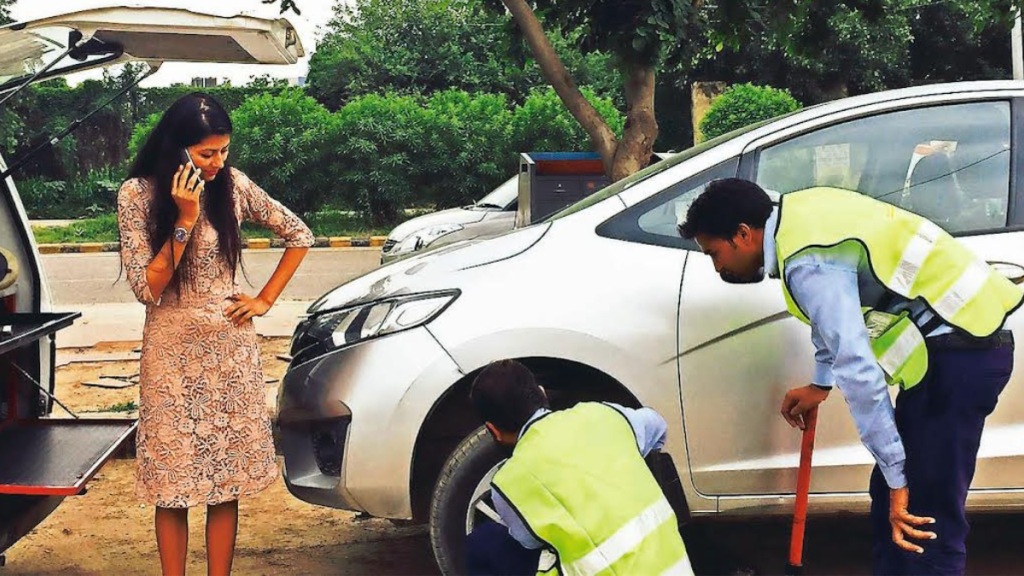Raise your hand if being deserted in the middle of nowhere after a vehicle breakdown is your worst nightmare. Only a driver/rider who’s dealt with that situation knows what a relief it is to have reliable roadside assistance when your journey is brought to an abrupt halt. Yes, quick help is always welcome, but the vehicle service or repair segment is still highly unorganised in our country, thanks to the affordability and reach of hole-in-the-wall service providers that dominate the rural and semi-urban landscape.
That is not to underestimate the massive disruption one is seeing in the assistance (RSA) sector now, driven by branded service providers, technological advancements, and the burgeoning electric vehicle (EV) ecosystem. Plus, as data from PolicyBazaar shows, 60% motor insurance buyers also prefer a roadside assistance cover.
But the thing is, while India is the world’s third-largest passenger vehicle market after China and the United States, the organised RSA market accounts a small fraction of the segment revenues globally. According to fact,MR, the global roadside assistance market was valued at $25 billion in 2023, and is expected to reach $40 billion at the end of 2033, growing at a CAGR of 4.8% between 2023 and 2033. A big part of this growth can be attributed to rising vehicle ownership and an increase in long-distance travel.
So what will it take for the Indian RSA market to realise its true potential?
Building up muscle
The potential is immense — roadside assistance services can thrive in both bustling cities and remote regions because vehicles throng city streets, while help can be scarce in remote areas. The need for assistance is constant in both, and consumers are increasingly gravitating towards on-demand app-based services that offer speed, convenience and value.
So what are the pain points? “The RSA market in India has long been dominated by informal networks, leaving drivers with inconsistent support and unpredictable service quality,” says Himanshu Arora, CEO & co-founder of GoMechanic. Arora says the entry of branded players will force unorganised ones to improve service standard or face obsolescence.
Faisal I Farooqui, CEO of MouthShut.com, draws attention to the poor speed of response time: “Inadequate road infrastructure and poor mobile network coverage severely hinder timely responses. Compounding this is substandard customer service, with call centre staff often wasting valuable time with unnecessary questions.” He adds that the industry must prioritise faster dispatch mechanisms, real-time ETAs, and better preparation for adverse weather conditions to improve customer trust.
As India pushes for EV adoption — the incremental market size of EV and EV components and charging infrastructure is likely to reach $22 bn by 2030, according to a NITI Aayog report — the RSA industry faces unique challenges. Traditional tow trucks and RSA providers are often ill-equipped to handle EV-specific issues like battery failures or charging needs. “The lack of a vast network of charging stations and EV-ready tow trucks are fundamental hurdles,” says Farooqui. Arora agrees, adding that the evolution of RSA services must include specialised solutions for EVs to align with the government’s ambitious EV goals.
The market’s future lies in its ability to adapt to changing mobility trends, say experts. “Only by addressing emerging issues with urgency, sensitivity, and technological foresight can the industry evolve to meet the growing demands of modern customers,” says Farooqui.
The signs of change are visible already. The integration of advanced technologies such as AI and IoT is reshaping the RSA landscape. Mudassirkhan Pathan, co-founder & head of Engineering, Intangles, explains: “With tools like AI and connected vehicle systems, service providers can now analyse performance patterns and identify risks early, preventing breakdowns and delivering a more reliable experience for fleets and individual users. This enhances operational efficiency and establishes a new benchmark for consumer trust.” The integration of predictive analytics and telematics into RSA solutions will not only improve service delivery but also enable preventive maintenance.
GPS tracking and mobile platforms have already become industry standards, facilitating easy booking, real-time updates, and secure payment gateways. Kunal Sethi, CEO of The Detailing Mafia, notes, “Future innovations could include predictive maintenance using AI, drone-based assistance, and autonomous emergency response vehicles.”
